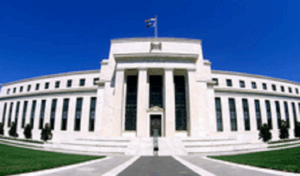Toronto-area real estate market faces a barrage of low-ball bids
The Toronto-area real estate market is increasingly drawing comparisons to the 1990s.
Sales last month in the Greater Toronto Area reached their lowest level for a month of March since 1995, points out Daren King, economist at National Bank of Canada.
That follows a February tally that also hadn’t been seen in more than two decades.
The difference today is that the recent low sales numbers are a blip caused by uncertainty – unlike the prolonged downturn that lasted for a decade.
Buyers haven’t vanished this spring, but many are hunkering down amidst a trade war, stock market gyrations and an impending federal election.
Sellers, meanwhile, are continuing to list.
“Supply is mounting,” says Christopher Bibby, broker with Re/Max Hallmark Bibby Group Realty, who had 22 listings for sale in early April. That’s a significant bump from the number he typically has at one time.
But unlike during the paralysis gripping the market for stretches of 2023 and 2024, properties are selling this spring as buyers take advantage of looser conditions, he says.
In some cases, sellers are first batting away buyers trying their luck with lowball bids.
In Little Italy, Mr. Bibby first listed a three-storey townhouse with an asking price of $2.249-million, then reduced to $2.199-million.
The sellers at 291 Roxton Rd. received low offers of $1.9-million and $2-million for the three-bedroom home, Mr. Bibby says, but they remained patient and the townhouse sold for $2.090-million.
Not far away, Mr. Bibby listed a detached Victorian-era home at 14 Delaware Ave. with an asking price of $2.695-million. On day four, an offer landed for $2.1-million.
The sellers rejected that and, two weeks later, a new set of buyers arrived. The lowball bidders also came back for a second round. The new buyers prevailed with an offer of $2.75-million.
In more difficult circumstances, some sellers are struggling to break even after purchasing in 2021 and 2022.
Mr. Bibby points out that people who purchased 20 years ago or so are still doing extremely well. But someone who purchased in 2021, paid land transfer tax and then put money into renovations will likely be selling at a loss today.
“It’s impossible – I can’t do it,” says Mr. Bibby of the expectations of some sellers. “If there’s a specific number you need, don’t test the market.”
Mr. King of National Bank says there is no doubt that U.S. President Donald Trump’s tariff threats have weighed on consumer confidence and the housing market in Toronto as potential buyers wait for more economic visibility before acting.
In March, real estate sales in the GTA dipped 2.4 per cent on a seasonally adjusted basis from February, according to the Toronto Regional Real Estate Board.
That slip follows a 28.5 per cent slide in February from January.
On the supply side, new listings bounced by 9.6 per cent in March from February. Combined with the decrease in sales, active listings edged up by 1.6 per cent during the month to mark a twelfth consecutive gain.
Sales in the GTA in March fell 23.6 per cent from March, 2024.
Active listings soared 88.3 per cent in March compared with the same month last year. That’s the highest level for March since 2009.
For the first three months of 2025, sales fell 21.3 per cent compared with the same period in 2024 and recorded their lowest level for a first quarter since 1999.
Mr. King estimates that condo sales in the GTA slid by 8.8 per cent in March from February on a seasonally adjusted basis. Active listings jumped 5.7 per cent in the same period to their highest level on record, he adds.
Cheri McCann, broker with McCann Realty Group, says the swelling inventory has prompted some sellers to set eye-catching asking prices.
Her team listed a unit at 161 Roehampton Ave. in the Yonge Street and Eglinton Avenue area with an asking price of $399,000. The bachelor unit could be easily transformed into a one-bedroom, she says, and a buyer would also have the use of the building’s gym and other amenities.
Declining interest rates are also making a purchase easier for first-time buyers, she points out.
In early April, the unit was listed for rent.
As a result of the recent action, Mr. Bibby is bringing new listings out in April, despite the high level of inventory already on the market.
“I’m pushing people to go now,” says Mr. Bibby. “I’m not holding anything back.”
Mr. Bibby has negotiated several transactions recently in the segment for unique lofts and upscale condos, where he does much of his business.
Buyers who intend to live in the units are willing to purchase, he says.
The most bloated inventory tends to be in downtown towers with the type of small one-bedroom units that investors purchased preconstruction in the past.
In Liberty Village, Mr. Bibby sold a penthouse for 8 per cent less than similar units traded for at the peak.
But it sold because it was livable: the unit has full-sized appliances, a little laundry room and a proper bedroom.
The buyer is going to move in, he says.
Mr. Bibby also doesn’t want to take a chance that the pattern of 2024 will be repeated: last year buyers headed to the sidelines in late May while supply continued to balloon. By Labour Day, new condos coming on the market weren’t even getting showings.
At the moment, showings are still fairly brisk for appealing properties, he says.
Units are also trading hands because sellers have become more flexible and are willing to negotiate, he adds.
In the first week of April, Mr. Bibby was waiting for the snow and ice to abate so photographers could shoot photos for upcoming listings, including one on the city’s waterfront and another with a rooftop terrace.
“The weather’s not great, but I will take this market over holding out for perfect weather,” he says. “I like April better than I like June.”
This article was first reported by The Globe and Mail














